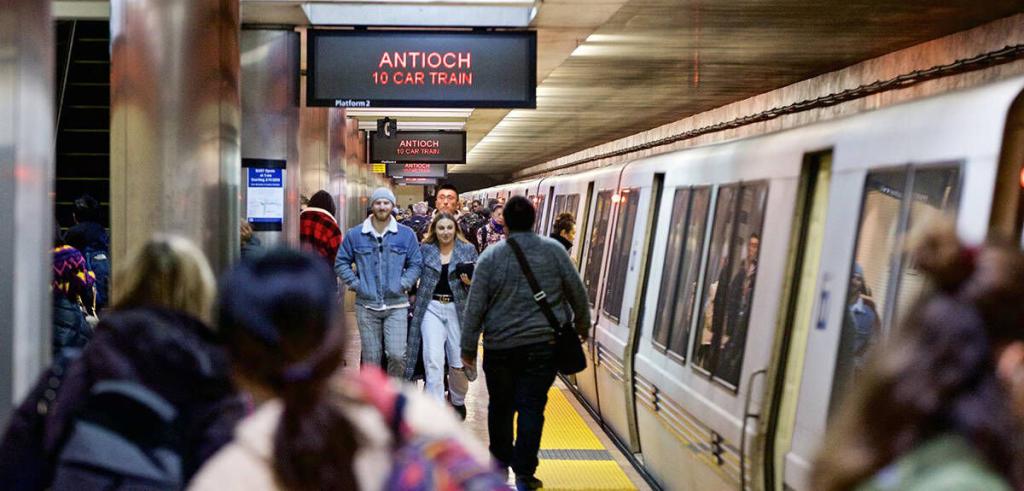Zakhary Mallett: Inequitable Inefficiency: A Case Study of Rail Transit Fare Policies

Subway station. image / San Francisco Examiner
Abstract:
Research on transit fare equity often includes a calculation of disparity in the fare per mile paid by different groups of riders. This cost-benefit measurement overlooks the cost-sharing nature of transit; as more riders consume a service, the average cost per rider declines. Using an average cost per rider metric to assign trip costs, and origin-destination fare data to estimate cost recovery through fares, I estimate the spatial and temporal variability of cost recovery across two rail systems, BART and MARTA. I find that cost recovery patterns are spatially monocentric and that the weekday peak period recovers more of its costs through fares than other time periods. I offer ideas on why these findings appear divergent to past research.
Bio:
Zakhary Mallett is the inaugural Strauch Fellow in the Department of City and Regional Planning at Cornell University's College of Architecture, Art, and Planning. His research focuses on the interaction between transportation finance, travel behavior, and urban form. That is, to what extent are travel behaviors and the built environment — and the myriad of contemporary planning issues surrounding these — influenced by the inefficiency of how transportation is financed?
Prior to his academic career, Mallett was an elected member of the governing board of the San Francisco Bay Area Rapid Transit District (BART), where he served for four years and advocated for policies to be based on empirical findings and conscious of long-term financial impacts.
Mallett received his Ph.D. in Urban Planning and Development from the University of Southern California; Master of City Planning from the University of California, Berkeley; and bachelor's degree from Stanford University.







